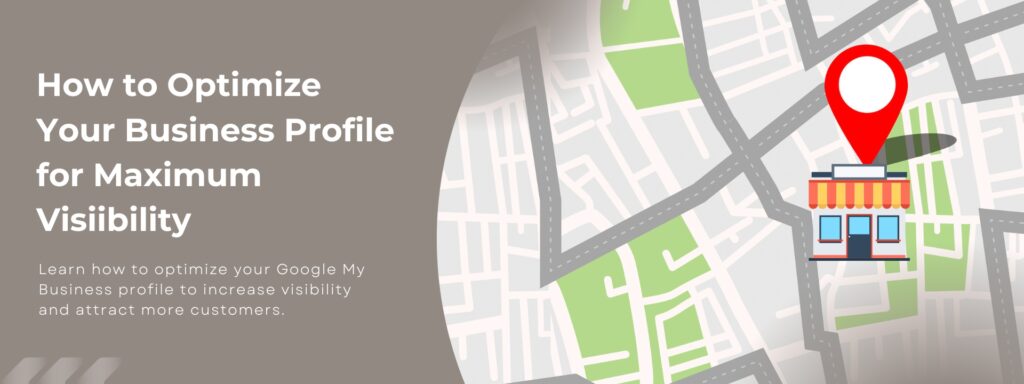Introduction to Local SEO
In the digital age, small businesses face an ever-changing landscape in their quest to thrive and grow. One of the most critical aspects of this landscape is search engine optimization (SEO). While most businesses are familiar with the concept of SEO, there is a subset called Local SEO, which is specifically tailored to help small businesses attract local customers. Local SEO is becoming increasingly important as customers seek products and services close to their location.
The Growing Importance of Local SEO
As search engines become more sophisticated and user behavior continues to evolve, local SEO has gained prominence. With the majority of users searching for local businesses on their smartphones, it’s crucial for small businesses to optimize their online presence for local searches. Now let’s dive into the five key benefits of local SEO for small businesses.
8 Key Benefits of Local SEO for Small Businesses
1. Increased Visibility and Brand Awareness
Local Search Results
One of the most significant benefits of local SEO is increased visibility in search engine results. When users search for products or services near them, search engines display local businesses that are most relevant to the query. By optimizing your website and online presence for local search, you can appear in these local search results, making it easier for potential customers to find your business.
Google My Business Listing
Creating and maintaining a Google My Business listing is another way to increase visibility and brand awareness. This listing displays your business information, such as your address, phone number, website, and customer reviews, directly in the search results. A well-optimized Google My Business listing can make your business stand out from the competition and improve your chances of attracting local customers.
To learn more about optimizing your Google My Business profile, read our comprehensive guide to Optimizing Your Google My Business Profile.
2. Higher Conversion Rates
Targeted Traffic
Local SEO helps you attract targeted traffic to your website. By optimizing your website for local keywords and phrases, you can reach users who are specifically searching for products or services in your area. This targeted traffic is more likely to convert into customers, as they are already interested in what your business has to offer.
Mobile Search Optimization
With the increasing use of smartphones, mobile search has become a significant source of local traffic. By optimizing your website for mobile devices, you can ensure that users can easily navigate and find the information they need. This, in turn, can lead to higher conversion rates and more customers for your business.
3. Greater Customer Engagement
Online Reviews
Local SEO encourages customer engagement by highlighting online reviews and testimonials. By encouraging customers to leave reviews on your website or platforms like Google My Business, you can build trust and credibility with potential customers. These reviews can also provide valuable feedback to help you improve your products or services.
Local Content Creation
Creating content that is relevant to your local audience is another way to engage customers. By sharing news about local events, promotions, or collaborations with other local businesses, you can foster a sense of community and create a more personalized experience for your customers. This can help build loyalty and encourage repeat business.
4. Better Return on Investment (ROI)
Cost-Effective Marketing Strategy
Local SEO is a cost-effective marketing strategy compared to other methods like traditional advertising or pay-per-click campaigns. By focusing on a targeted audience, you can reach potential customers with a higher likelihood of converting, resulting in a better ROI for your marketing efforts.
Long-Term Results
Investing in local SEO can provide long-term results for your business. Once you’ve established a strong online presence, it’s easier to maintain and continue reaping the benefits. Unlike paid advertising campaigns, which require constant investment, local SEO efforts can continue to generate traffic and leads long after the initial work is completed.
5. Staying Ahead of the Competition
Local Keyword Optimization
By optimizing your website for local keywords and phrases, you can outperform competitors who may not be investing in local SEO. This advantage can help you attract more customers and grow your business in the local market.
Adapting to Search Engine Algorithm Changes
Search engines like Google are constantly updating their algorithms to provide better search results for users. Staying up-to-date with these changes and adjusting your local SEO strategy accordingly can help you maintain or improve your search rankings, keeping you ahead of the competition.
For more practical tips on improving your local SEO, check out our article on ’10 Local SEO Tips for Small Businesses You Can Implement Today’.
6. Building Local Citations

Importance of Local Citations
Local citations refer to any mention of your business’s name, address, and phone number (NAP) on other websites, such as online directories, social media profiles, and local business listings. Ensuring that your NAP information is consistent across all these platforms can improve your local SEO efforts and help search engines recognize your business as a trustworthy and credible source.
How to Build Local Citations
Start by researching the most popular and relevant local directories and business listing websites for your industry. Create or claim your business listings on these platforms, making sure to provide accurate and consistent NAP information. Additionally, be sure to monitor and update your listings regularly to maintain their accuracy.
7. Utilizing Social Media for Local SEO
Engaging with the Local Community
Social media platforms can play a crucial role in your local SEO efforts. By actively engaging with your local community on platforms like Facebook, Instagram, Twitter, and LinkedIn, you can create awareness about your business and foster relationships with potential customers.
Sharing Local Content
Sharing local content, such as news about events, promotions, or collaborations with other local businesses, can help you connect with your target audience on a personal level. This can lead to increased brand loyalty and customer retention.
8. Implementing Structured Data Markup
Understanding Structured Data Markup
Structured data markup, also known as schema markup, is a type of code that helps search engines understand your website’s content better. By implementing structured data markup on your website, you can provide search engines with additional information about your business, such as location, contact details, hours of operation, and product or service offerings.
Benefits of Structured Data Markup
Using structured data markup can improve your website’s visibility in search engine results by enabling rich snippets and other enhanced features. This can help your business stand out from the competition and increase the likelihood of users clicking on your website.
Incorporating Local SEO into Your Overall Marketing Strategy
Local SEO is not a standalone strategy but rather an integral part of your overall marketing efforts. By combining local SEO with other marketing channels, such as email marketing, content marketing, and paid advertising, you can create a comprehensive and effective marketing plan to grow your business.
Ultimately, the key to success with local SEO lies in staying informed, adapting to changes in search engine algorithms, and continually optimizing your website and online presence to provide the best possible experience for users. With consistent effort and the right strategies in place, your small business can reap the many benefits of local SEO and achieve lasting success in the digital marketplace.
Conclusion
Local SEO is more important than ever for small businesses looking to thrive in an increasingly competitive digital landscape. By focusing on increased visibility, higher conversion rates, greater customer engagement, better ROI, and staying ahead of the competition, local SEO can provide significant benefits for small businesses. As customers continue to seek out local products and services, investing in local SEO is a must for small businesses looking to succeed in today’s market.
Implementing local SEO strategies can be challenging, but the rewards are well worth the effort. If you’re interested in optimizing your business’s online presence and maximizing your local SEO potential, consider booking a call with our team today. Our experts can help you navigate the complexities of local SEO and provide customized solutions to help your business achieve lasting success in the digital marketplace.
FAQs
Q: What is the difference between SEO and Local SEO?
A: SEO focuses on improving your website’s visibility and rankings in search engine results, while Local SEO specifically targets users searching for products or services in a specific geographic area.
Q: How do I optimize my website for local search?
A: Optimizing your website for local search involves creating and maintaining a Google My Business listing, using location-specific keywords, creating locally relevant content, and ensuring your website is mobile-friendly.
Q: How can I encourage customers to leave online reviews?
A: You can encourage customers to leave reviews by asking them directly, providing links to review platforms on your website, or offering incentives like discounts or promotions for leaving a review.
Q: Why is mobile optimization important for local SEO?
A: With the increasing use of smartphones for searching, mobile optimization ensures that users can easily navigate your website and find the information they need, leading to higher conversion rates and more customers.
Q: What are some tools I can use to improve my local SEO?
A: Some popular tools for improving local SEO include Google My Business, Google Analytics, Google Search Console, and various keyword research tools like Moz Local, Ahrefs, or SEMrush.



